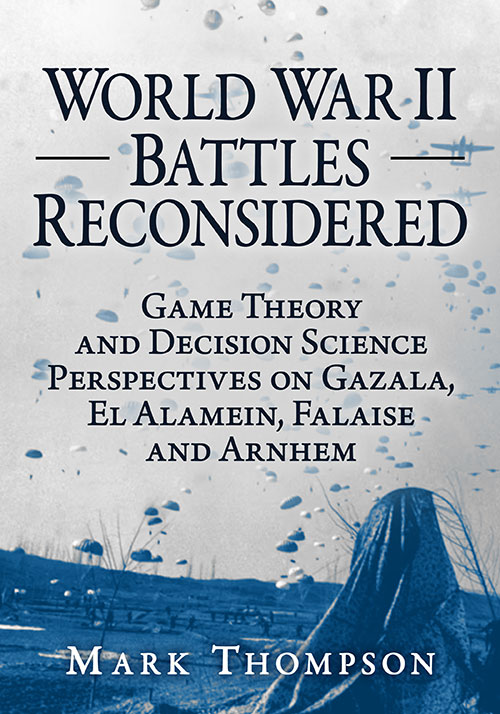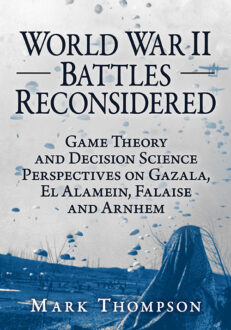World War II Battles Reconsidered
Game Theory and Decision Science Perspectives on Gazala, El Alamein, Falaise and Arnhem
$75.00
Available for pre-order / backorder
About the Book
Written by a former Harvard professor of decision science and game theory, this book presents original insights on the strategies and tactics undertaken in four major battles of the Second World War. That the fighting at Gazala in Libya in the late spring of 1942 constituted what has been called “probably the most spectacular series of victories ever gained over a British army” was in part due to its having violated the game-theoretic Zero-Sum Maxim of Napoleon: “Do not do what your enemy wishes you to.” The sensational British reversal of that disaster later that year at El Alamein in Egypt derived largely from heeding the millennia-old military priority of command unity, which has been analyzed and re-endorsed by modern decision science. This discipline has also judged the somewhat disappointing victory of the Allies at Falaise in France in August of 1944 to have resulted from excessive risk aversion—possibly induced by three different types of fatigue. One month later, the Allied setback at Arnhem in the Netherlands called into question, from the perspective of game theory, the value of battlefield surprise. These decisions, approached from an expert perspective on game theory and presented with high-quality maps, are presented in this pioneering application of decision science to the battles of World War II.
About the Author(s)
Bibliographic Details
Mark Thompson
Format:
Pages:
Bibliographic Info: ca. 5 photos, notes, bibliography, index
Copyright Date: 2024
pISBN: 978-1-4766-9673-7
eISBN: 978-1-4766-5472-0
Imprint: McFarland





